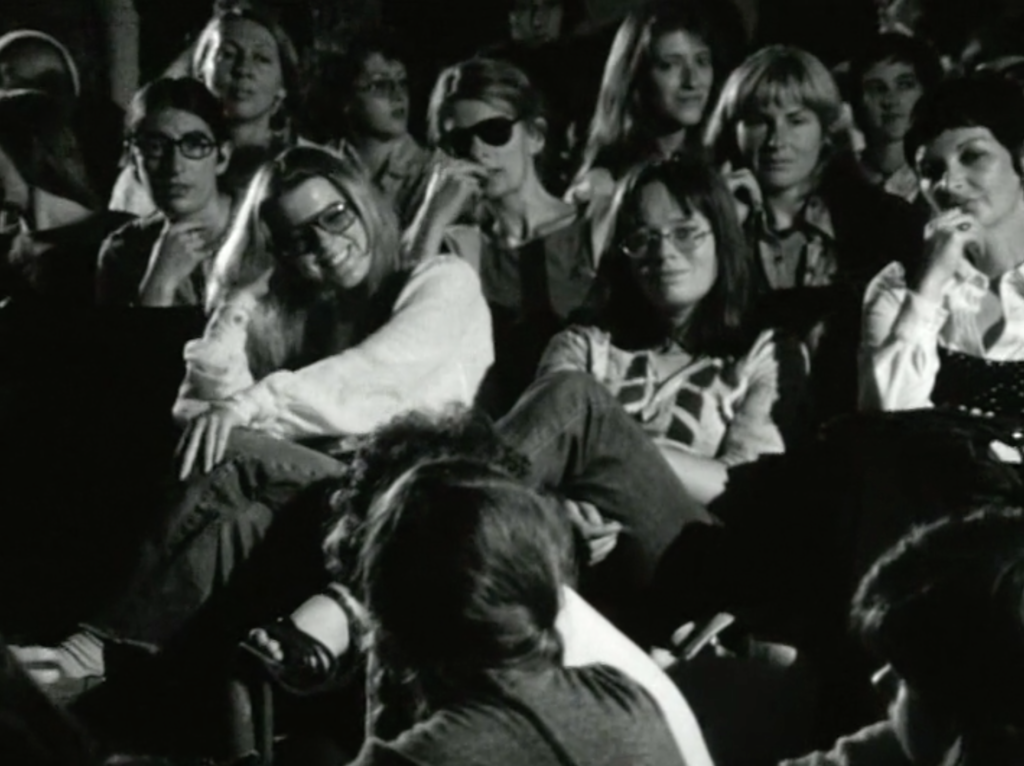In 1957, aspiring cinematographer and pioneering film maker Lilias Fraser approached the Commonwealth Film Unit for a job. With two films already under her belt, and the head of the unit applauding her exceptional cinematography, the response she received was nonsensical:
“Go back to university. You are not strong enough to carry the cameras.”
WHEN: Friday, 22 April 2022. 7:00 pm – 8:30 pm AEST
WHERE: Llewellyn Hall, Building 100, William Herbert Place, Canberra, ACT 2601
WHO: The panellists are: Australian Director/Writer Kim Farrant, Producer Sue Maslin AO, Producer Sheila Jayadev, Professor Lisa French, Director/cinematographer Jane Castle, Director/ Producer Pat Fiske. Hosted by BoradAgenda editor, Ginger Gorman.
ABC Big Ideas will be recording the event.
For Australia, the 1970s was politically and socially revolutionary, with the reinvigorated women’s movement enjoying unprecedented support from the broader society. In 1972 Gough Whitlam swept to power with an agenda to support gender equality; the United Nations declared 1975 ‘International Women’s Year’, which was commemorated with an ‘International Women’s Film Festival’; and after a prolonged hiatus, the Australian film industry began telling its own stories.
The rise of the women’s movement coincided with the revival of the Australian film industry.
Film was recognised by women filmmakers for its potential for activism. It was used for consciousness raising, to express female experience and creativity, and to gain exposure for the goals of the women’s liberation movement. Feminist filmmaking in Australia was born.
At the start of the decade only a handful of women were involved in films in decisive, creative or technical roles. Just three short years later, the momentum for women to participate in filmmaking had rapidly grown, leading to ‘Womenvision’ – the first major [national] enterprise of the women’s film movement in Australia.
In November 1973, two hundred women from diverse backgrounds attended a three-day weekend at the Sydney Filmmakers Co-op in Darlinghurst, where feminist solidarity was palpable. As recalled by one of the attendees:
The party on the Saturday night, …Two hundred women were in that Co-op: women were bursting out windows. I hadn’t been with an all-women group, I realised, since I left high school and it was a total buzz. It was obviously a total buzz for all the other women too … men are together in all male groups all the time… [and there is a] difference in what women will say to each other, and how they will say it, when there’s no men around.
However, despite the successes of the event, it was abundantly clear that the road to equality was still in its infancy. As noted by one of the organisers, filmmaker Martha Ansara, they could find only three women who had directed films professionally in Australia.
As it would turn out, one of these pioneers was Lilias Fraser, who less than two decades ago was told she was too weak to carry the cameras.
For those interested to see Jane Castle’s powerful film about her mum, Lilias Fraser, When the Camera Stopped Rolling is screening at:
Arc Cinema, NFSA, Canberra, 23 April
ACMI, Melbourne, 21-24 April.
According to Ansara, Fraser was “vivacious, enthusiastic, ever optimistic, and a mother of two in an industry where most women are forced to choose between family and career”. And as a sign of not just her physical strength but her extraordinary resilience, she ended up making more than 40 films, persevering in the face of gender bias and personal challenges to achieve what was a remarkable output for the times in which she worked.
Following the Womenvision weekend, the 1970s and 1980s saw a mushrooming of women’s groups involved in film production, distribution and exhibition, with women’s only Filmmaker Co-ops being established around the country. However, feminist film groups were not immune to the challenges experienced within the broader women’s movement.

Poor quality – but historically significant – black and white image from the Womenvision 1973 event. Supplied by Lisa French.
The diverse interests and backgrounds of participants provoked some divisions, and tensions and factions emerged that “would continue to worry women’s film groups during the 1970s”. As noted by Indigenous women in the recent documentary, Brazen Hussies, feminism neither included, nor did speak for them.
Despite this, the Womenvision weekend had two important outcomes: it created “a fresh wave of enthusiasm and activism” and “the dominance of a particular type of feminist filmmaking”. This ‘type’ was an overtly feminist, often experimental, and frequently collaborative form.
The emergence of feminist film and ‘women’s cinema’ owes much to the 70s women filmmakers struggling in a male dominated industry. And now it’s time to celebrate their achievements and take stock of how far we’ve come – and sadly, how much still needs to happen before we can talk about ‘equality’ in the film industry.
On 22 April, a diverse group of people will participate at the Beyond Womenvision event in Canberra. The panellists include the inimitable producer, Pat Fiske, who attended the original event in 1973, and cinematographer and director, Jane Castle – the daughter of Lilias Fraser. Fiske and Castle recently joined forces to produce the 2021 documentary, When the Cameras Stopped Rolling, which tells the story of Fraser.
Other panellists are writer director Kim Farrant (Strangerland, The Weekend Away); producer Sheila Jayadev via zoom (Ali’s Wedding, Stateless); producer Sue Maslin (The Dressmaker, Exec Producer Brazen Hussies); and Lisa French (academic and author of Womenvision: Women and The Moving Image in Australia)—with MC Ginger Gorman (BroadAgenda Editor, journalist, author and mentor).
The event recognises the danger that historical gains can be forgotten or lost. The major battles of the 1970s continue today. Violence against women, women’s participation in public spheres, creative expression, sexism, discrimination, gender pay – just to name a few – are still a part of our everyday existence. In the screen industry, women continue as the “minority of the personnel in a large number of key creative roles” and still struggle to achieve equal participation and gender equity. The inspiration set by Womenvision in 1973 is as important and relevant today as it ever was.
Feature image: Picture shows Lilias Fraser hard at work directing films. This image was supplied by Jane Castle, her daughter.
Lisa French is Dean of The School of Media and Communication at RMIT University and Professor of Screen and Media. She is internationally recognised for her research on women in Australian Cinema. Her books include Womenvision: Women and the Moving Image in Australia (2003) and The Female Gaze in Documentary Film – An International Perspective (2021). She is a member of the federal government agency Screen Australia’s Gender Matters Taskforce, and she is Co-chair of a UNESCO 19 global university research network on gender, media and ICTs.





